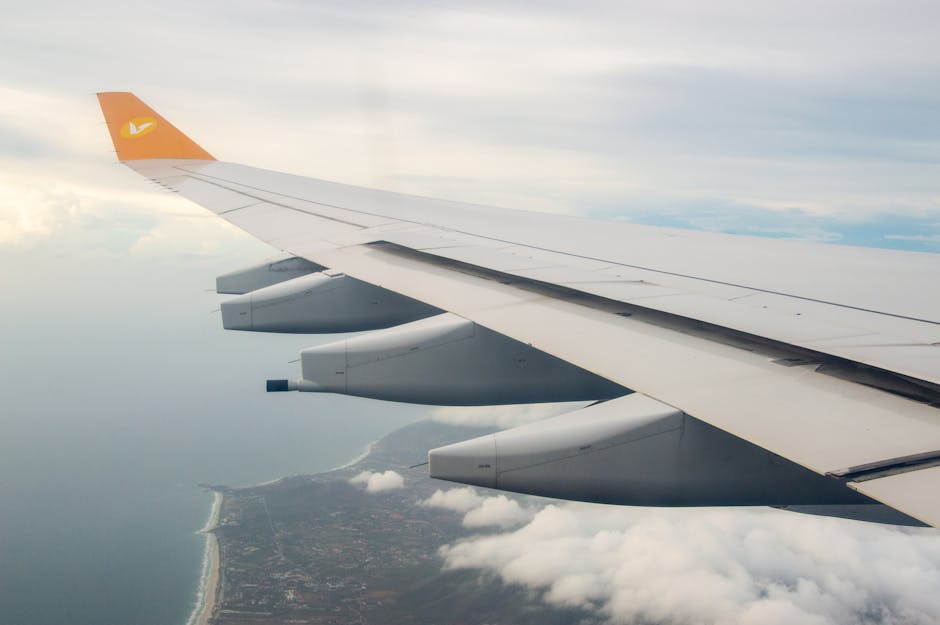How to Overcome Jet Lag Quickly and Effectively
Jet lag is an all-too-familiar nemesis for travelers crossing multiple time zones. This temporary sleep disorder arises when your internal body clock, or circadian rhythm, is out of sync with the local time at your destination. Symptoms can range from fatigue and difficulty concentrating to digestive problems and mood swings. Understanding how to mitigate these effects can help you adjust more quickly and enjoy your travels without the cloud of exhaustion hanging over you.
Understanding Jet Lag
Jet lag occurs because your body's internal clock is misaligned with the new time zone. When you travel across time zones, your body’s natural rhythms are disrupted, leading to feelings of tiredness during the day and alertness at night. The extent of jet lag typically depends on several factors, including the number of time zones crossed, your age, and overall health.
A study from the Mayo Clinic indicates that people generally need about a day to adjust for each time zone they cross. If you travel from New York to London (crossing five time zones), it might take about five days for your body to fully acclimate (Mayo Clinic).
Pre-Trip Preparations
Being well-prepared is essential for reducing the effects of jet lag. Start adjusting your sleep schedule a few days before departure. If you're traveling east, go to bed an hour earlier each night; if heading west, go to bed an hour later. This gradual shift helps your body start adjusting before you even leave home.
Stay hydrated and avoid alcohol and caffeine, as these can exacerbate dehydration and interfere with sleep patterns. According to the National Sleep Foundation, hydration plays a critical role in maintaining energy levels and combating fatigue (Sleep Foundation).
Pre-Trip Checklist:
- Gradually adjust sleep schedule
- Avoid alcohol and caffeine
- Stay hydrated
- Plan for in-flight activities that promote relaxation
In-Flight Tips
The choices you make during your flight can also significantly impact how you feel upon arrival. Opt for water instead of caffeinated or alcoholic beverages, and try to get some rest if you're flying overnight. Use earplugs and an eye mask to block out noise and light, creating a more conducive environment for sleep.
Avoid heavy meals that can cause discomfort and disrupt sleep. Light snacks like fruits or nuts are better options. Walking around the cabin periodically helps reduce stiffness and improves circulation.

Post-Arrival Strategies
Upon arrival, expose yourself to natural sunlight as soon as possible. Sunlight is one of the most powerful tools for resetting your internal clock. Make it a habit to enjoy the outdoors or relax near a window when it’s light outside, as this can assist your body in acclimating.
Avoid napping right after arrival. While it may be tempting, napping can make it harder to fall asleep at night. Instead, stay awake until your regular bedtime in the new time zone.
If you're struggling to stay awake, engaging in light physical activity like walking can help keep you alert without overstimulating your system.
Long-Term Solutions
If you frequently travel across time zones for work or leisure, developing long-term strategies can help minimize jet lag’s impact. Maintaining good overall health through regular exercise, a balanced diet, and adequate sleep enhances your body's resilience against jet lag.
Consider using melatonin supplements under medical supervision. Melatonin is a hormone that regulates sleep-wake cycles and can be helpful in adjusting to new time zones.
| Tips | Description |
|---|---|
| Avoid Alcohol and Caffeine | Avoid these substances before and during flights as they can interfere with sleep patterns. |
| Stay Hydrated | Drink plenty of water before, during, and after the flight to combat dehydration. |
| Expose Yourself to Sunlight | Natural light helps reset your internal clock faster upon arrival. |
| Avoid Napping Post-Arrival | Napping can disrupt your ability to fall asleep at night in the new time zone. |
| Consider Melatonin Supplements | Under medical guidance, melatonin can assist in adjusting sleep-wake cycles when traveling across multiple time zones. |
Cultural Considerations and Personal Insights
Cultural practices regarding sleep vary widely around the world. In some cultures, afternoon siestas are common and can help ease into a new time zone gradually without disrupting nighttime sleep too severely.
Personally, I've found that incorporating elements of local culture into my routine helps me acclimate more quickly. During my business trip to Spain, I embraced the local tradition of enjoying a light dinner in the late hours, which I complemented with a refreshing stroll afterward. This experience not only allowed me to synchronize my body's natural rhythms but also deepened my understanding of the local customs and practices.
Overcoming jet lag requires a combination of pre-trip preparation, smart in-flight choices, post-arrival strategies, and long-term health practices.